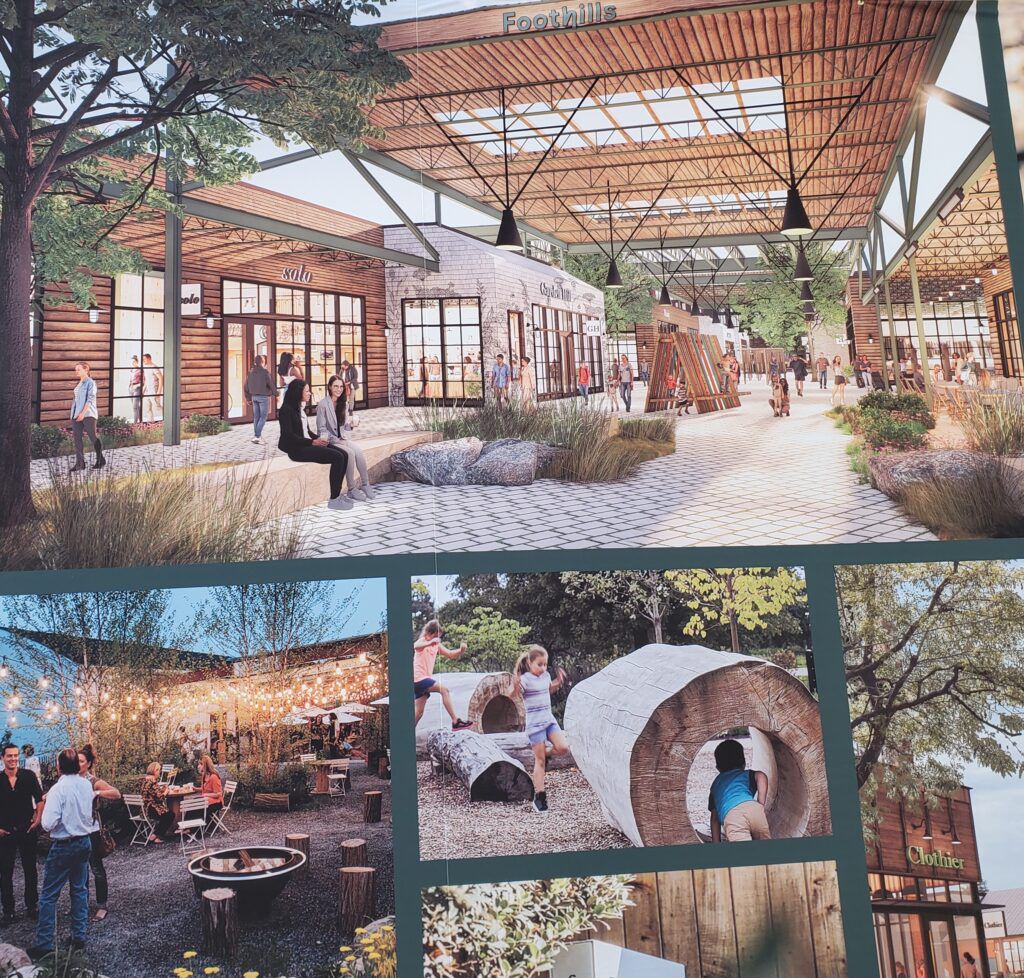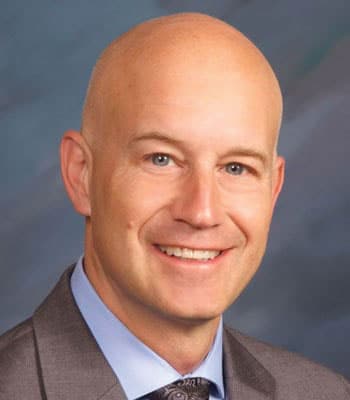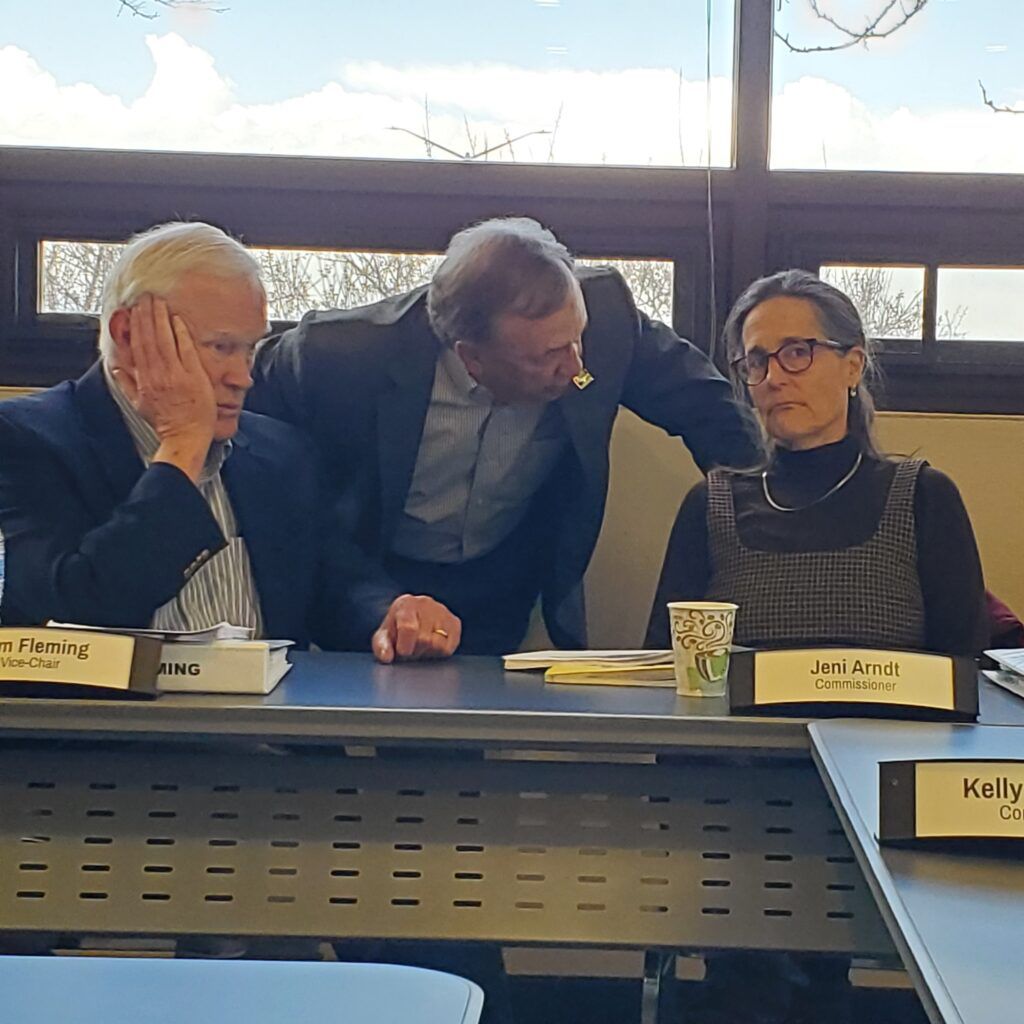Loveland incentive package for Customs office advances
LOVELAND – An economic incentive package to help a private business secure and staff a U.S. Customs office near the Northern Colorado Regional Airport won unanimous first-reading approval Tuesday night from the Loveland City Council.
A final vote on the package is expected at the council’s Dec. 6 meeting.
Negotiated by Loveland economic-development director Kelly Jones and Windsor-based developer Martin Lind, whose Water Valley Land Co. built the Discovery Air Charter Inc. campus just south of the airport, the pact would commit Loveland to donate $50,000 each year for the first three years the Customs office was open. The money would go toward staffing, tenant finish and other expenses.
Lind in October won approval from the U.S. Customs and Border Protection agency for his application to host the Customs office at Discovery Air, located at 5017 Lindbergh Drive in Loveland, after the airport’s governing commission in September decided that paying for a new terminal was more important and that the cost to add the Customs office would mean it couldn’t provide additional staff at the airport.
Airport director Jason Licon told the council Tuesday that the commission also was directed by federal regulations to reinvest in the airport, but that the primary reason was practical.
“Discovery Air had the facility and the airport didn’t,” he said. “We’re still using trailers for our terminal.”
Lind, however, told the council that “we didn’t feel like we should be doing this” and that providing for the Customs office should have been “the government’s role.”
Still, Jones said “Jason spent time studying this, and his budget just wouldn’t sustain it.” She said it was appropriate for the city of Loveland, which owns the airport along with the city of Fort Collins, to step in because the Customs office is “a really important piece of the airport story moving forward.” She said she began pursuing the incentive package “after the airport and Fort Collins said no to this.”
Before the meeting, Lind told BizWest he has had “good conversations with the mayor of Fort Collins about this. I totally understand Fort Collins’ frustration with the airport,” which has seen scheduled passenger service come and go. “The cities need to do a deep dive about this airport and decide what its future’s going to be and how it’s going to be managed,” he said.
“This is simply not something private business should be taking the lead on. This Customs office should have been at the airport for years,” he said, adding that it was “super honorable of Kelly to step up.”
Lind’s application to locate the office at Discovery Air was one of 24 nationwide that were approved by U.S. Customs and Border Protection as part of its “reimbursable services agreement program” that allows applicants such as Discovery Air to get paid back for the cost of hiring customs officers.
The statute that enabled the program, an amendment to the Homeland Security Act, includes several limitations. “Reimbursable services are limited to overtime costs and support services for airports with 100,000 or more arriving international passengers annually,” the agency said when it announced the winning applications. “Airports with fewer than 100,000 arriving international passengers annually” – such as Northern Colorado Regional Airport – “may offset CBP for the salaries and expenses of not more than five full-time equivalent CBP officers. Reimbursable services agreements will not replace existing services.”
The airport commission in September had turned down Lind’s request for $200,000 a year to pay for those five CBP officers.
One member of the public who commented to the city council about the incentive pact charged that the Customs office would benefit only wealthy individuals and corporations, but Lind said “it’s a big misconception that this is a small office that just caters to big companies and jets.” He displayed a slide that listed all the services a Customs office can do for the general public, including passport applications, citizenship and naturalization procedures, advice on international travel, and clearances for transporting food, alcohol, tobacco and firearms into and out of the country.
Still, Lind and Jones pointed to direct and indirect economic benefits to the area that locating a Customs office adjacent to Northern Colorado Regional Airport could bring for the area, and Councilor Don Overcash agreed that it could be a “major business attraction and retention tool.”
Some of the region’s largest companies, such as Nutrien Ag Solutions Inc. and Woodward Inc., fly internationally to and from Northern Colorado Regional Airport but have had to stop on the way back into the United States at other airports that have Customs offices, such as Rocky Mountain Regional Airport in Broomfield or the airports in Billings, Montana, or Casper, Wyoming, because the Loveland-Fort Collins airport has had no such facilities. Executives of Saskatoon, Saskatchewan-based Nutrien, they noted, take many flights between the airport and Canadian cities such as Saskatoon or Calgary, Alberta, but have to stop off somewhere else on the way back to Northern Colorado.
Lind also said locating the office at Discovery Air made sense because the area is a midpoint for international trade – exactly 606 miles from both the Canadian and Mexican borders.
“If we have enough international flights land here, maybe we won’t need assistance” in the future, Lind said. “If this even attracts one business, it will pay for it. This will attract far more than that.”
The money would be spent wisely, he added. “There isn’t going to be gold-plated countertops or anything like that.”
The economic incentive would be a supplemental appropriation to the city of Loveland’s 2023 budget. As part of its annual budget process, the Loveland City Council has made annual allocations to the economic-development incentive fund since it was formed in 2013.
Source: BizWest




